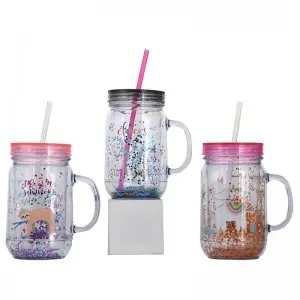In recent years, there has been a growing focus on sustainable practices and environmental responsibility. Recycling has become an important aspect of this movement, helping to conserve resources and reduce waste. However, when it comes to wine bottles, many people might wonder if they can be recycled. In this blog, we explore the recycling potential of wine bottles and shed light on their environmental impact.
The impact of wine bottles on the environment:
Wine bottles are primarily made of glass, a highly recyclable material. Glass is made from sand, soda ash and limestone and can be recycled indefinitely without loss of its quality. However, the production of glass bottles requires a lot of energy and natural resources. This includes mining raw materials, melting them at high temperatures, and transporting finished products. But once in circulation, glass, including wine bottles, can be effectively recycled.
Recycled Wine Bottles:
The recycling process for wine bottles is relatively simple. Once collected, the bottles are sorted by color (clear, green or brown) and then crushed into small pieces called cullet. This cullet is melted down to produce new glass items, such as new wine bottles or other glass items. Any labels or caps on the bottles must be removed before the bottles are recycled to ensure the purity of the resulting cullet.
Benefits of recycling wine bottles:
1. Conserve resources: Recycling wine bottles conserves often overexploited natural resources, such as sand. By using recycled cullet, manufacturers can reduce their reliance on virgin materials, preserving these resources for the future.
2. Reduced greenhouse gas emissions: Producing new glass from virgin materials releases large amounts of greenhouse gases. Recycling wine bottles reduces the need for new glass production, thereby lowering carbon emissions.
3. Reduce waste: Recycling wine bottles prevents them from ending up in landfills. By diverting bottles out of the waste stream, we can reduce the overall amount of waste and minimize the environmental impact of landfilling.
4. Energy saving: Melting cullet to produce glass products requires less energy than the production process using virgin materials. This energy saving potential makes recycling wine bottles an environmentally friendly option.
Challenges and considerations:
While wine bottles are highly recyclable, there are still some challenges and considerations:
1. Pollution: Wine bottles need to be thoroughly cleaned before recycling to avoid contamination. Any leftover wine, labels, or other accessories can hinder the recycling process.
2. Collection and sorting: An efficient collection and sorting system for glass recycling is essential to ensure the maximum recycling potential of wine bottles. Adequate infrastructure and consumer awareness play an important role in increasing recycling rates.
All in all, wine bottles can be efficiently recycled due to the high recyclability of glass. By recycling wine bottles, we save resources, reduce greenhouse gas emissions and minimize waste. It is critical for consumers to promote and prioritize correct bottle disposal and recycling practices. By doing this, we can contribute to a more sustainable world and a greener future. Remember, the next time you open that bottle of wine, consider its journey beyond consumption and give it a second life through recycling.
Post time: Jul-13-2023
